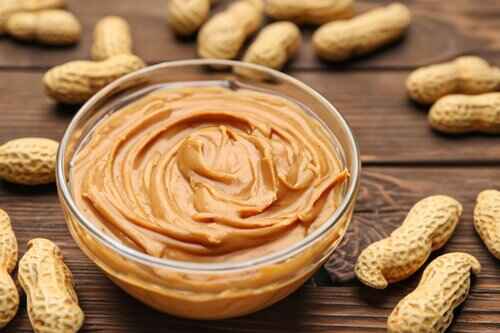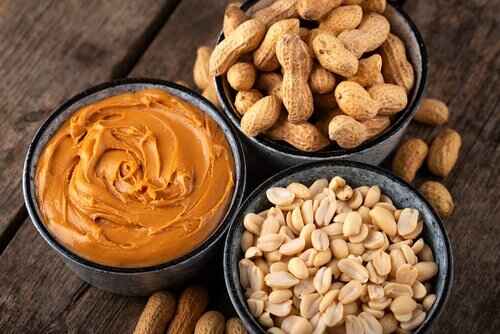
Apr 13 , 2024
Peanut butter is loved by many people because of its taste and texture, making it popular around the world.
However, it can be risky for people with peanut allergies, causing serious health risks.
Additionally, some brands may contain high levels of added fats and sugars, raising concerns.
Therefore, while peanut butter can be a good source of protein, its healthiness varies depending on individual factors such as allergies and the specific product consumed.
Kidney diets are important for patients with kidney diseases like chronic kidney disease (CKD).
Unlike general diet plans, a renal diet is customized to suit the specific needs of individuals with impaired kidney function.
This is because kidney patients can accumulate waste and have high creatinine levels due to ineffective blood filtering.
The treatment for CKD can also be financially burdensome, with frequent doctor's visits and treatments adding up.
Since every person's body and metabolism are different, it's essential for CKD patients to consult their doctors or renal dietitians to create a personalized diet plan that meets their unique needs.

Peanut butter is usually made by grinding roasted peanuts into a paste, making it a simple and natural food.
However, many commercial brands add extra ingredients like sugar, vegetable oils, and trans fats, which can be unhealthy.
Too much sugar and trans fat can lead to health problems like heart disease.
To stay healthy, it's best to opt for peanut butter with just peanuts and maybe a bit of salt, avoiding processed varieties with multiple additives.
Peanut butter isn't just about vitamins and minerals; It's also rich in antioxidants like p-coumaric acid, which can potentially reduce arthritis in rats.
Additionally, it contains resveratrol a compound, which has been linked to reducing the risk of heart disease and other chronic diseases in animals.
While resveratrol has various potential health benefits, there is still limited evidence for it in humans.
While peanut butter is a healthy food and very nutritious, it may also contain harmful substances like aflatoxin.
These toxins come from a fungus called Aspergillus that can grow on peanuts, especially when they are stored in good condition such as in hot and humid conditions.
Aflatoxin has been linked to health problems such as liver cancer, stunted growth in children, and delayed mental development, especially in developing countries.
However, processing peanuts into peanut butter can significantly reduce aflatoxin levels.
The USDA monitors aflatoxin levels in foods to ensure they're within safe limits.
To minimize risk, opt for commercial peanut butter brands and discard any nuts that appear moldy or discolored.
Peanut butter packs a punch as a protein source, containing carbohydrates, protein, and fat.
In a 3.5-ounce (100-gram) serving, it provides 22 grams of carbs (with 5 grams of fiber), 22.5 grams of protein, and 51 grams of fat.
While it's rich in protein, it's lower in the essential amino acid methionine.
However, methionine deficiency is rare in healthy individuals.
Interestingly, intake of low methionine may have some health benefits, which may potentially increase lifespan in animals, although the effect on humans is less clear.

Peanut butter is packed with healthy fats, giving it a high-calorie count.
A 100-gram serving contains around 597 calories.
Despite its calorie density, consuming moderate amounts of pure peanut butter or whole peanuts can be part of a weight-loss diet.
Since it's rich in heart-healthy fats and protein, peanut butter is a very great choice for people who love vegetarian food or those who love a plant-based diet.
Half the fat in peanut butter is oleic acid, a beneficial monounsaturated fat also found in olive oil, which may improve insulin sensitivity.
It also contains a lot of linoleic acid, which is an essential omega-6 fatty acid.
Studies suggested that Omega 6 consumption may be risky because it can increase the risk of inflammation and chronic disease although more research is needed to confirm this.
Peanut butter is a healthy food, low in carbohydrates, with only 20% carbohydrates which makes it a good choice for people who love a low-carb diet.
Eating peanut butter has a minimal effect on blood sugar levels making it very suitable for people with a condition like type to diabetes.
And some studies also suggested that regular consumption of peanut butter may also be very helpful in reducing the risk of developing type 2 diabetes in the long run.
It is believed that this benefit is due to compounds like oleic acid and antioxidants found in peanuts.
Peanut butter packs a punch when it comes to vitamins and minerals. In a 3.5-ounce (100-gram) serving, it offers:
It is also rich in biotin and contains good amounts of potassium, zinc, vitamin B5, iron, and selenium.
However, keep in mind that this serving size packs 597 calories.
While it's nutritious, when compared to calories with other food, peanut butter isn't as rich in nutrients as low-calorie plant foods like spinach or broccoli.
For people with kidney problems like chronic kidney disease (CKD), it becomes important to manage certain nutrients to maintain kidney function and overall health.

Here are some key ideas:
High levels of phosphorus can be harmful to kidney patients as impaired kidneys may struggle to excrete excess phosphorus.
Peanut butter contains phosphorus, which kidney patients need to monitor.
Excess phosphorus can cause bone problems and heart problems.
Choosing peanut butter with less phosphorus or consuming it in moderation may help manage phosphorus levels.
Kidney patients often need to limit sodium intake to help control blood pressure and reduce fluid retention.
While natural peanut butter is generally low in sodium, processed or flavored varieties may contain added salt.
Choosing low-sodium options or unsalted peanut butter can help kidney patients follow their sodium restrictions.
Potassium is essential for nerve and muscle function, but excess potassium can be harmful to individuals with kidney problems, as the kidneys may struggle to regulate potassium levels.
Peanut butter contains potassium, so kidney patients should be careful about their intake, especially if they have been advised to limit potassium-rich foods.
Portion control and choosing lower potassium options can help manage potassium levels.
Protein intake is important for kidney patients, but excessive protein intake can put pressure on the kidneys.
Peanut butter is a good source of protein, but kidney patients should balance protein intake according to their individual needs and kidney function.
Working with a healthcare provider or dietitian to determine the appropriate amount of protein from peanut butter and other sources can help maintain kidney health.
Kidney patients may need to monitor their fluid intake, especially if they have fluid retention or are on dialysis.
Peanut butter has a relatively low water content, but it can contribute to fluid intake when consumed with liquids or in dishes.
It is important for kidney patients to monitor overall fluid intake, including fluids obtained from peanut butter and other foods, to avoid fluid overload.
Kidney patients should consider the phosphorus, sodium, potassium, and protein content in peanut butter as well as its contribution to overall fluid intake when planning their diet.
Yes, Peanut butter is good for kidney disease. Here's a breakdown of the pros and cons:
Pros:
Cons:
Yes, peanut butter is considered high in both potassium and phosphorus. Here's a specific breakdown:
For reference, the daily recommended intake for adults is around 700 mg of phosphorus and 4,700 mg of potassium. However, people with kidney disease may need to restrict their intake of these minerals depending on the severity of their condition.
Here's why high potassium and phosphorus content might be a concern for kidney disease:
Peanut butter can be a tricky option for CKD patients, depending on the stage of your chronic kidney disease. Here's a breakdown:
Potential Benefits:
Potential Concerns:
General Recommendations:
Additional Tips:
Peanut butter can be part of a healthy diet for dialysis patients, but there are some things to consider.
Here are some tips for choosing peanut butter for dialysis patients:
Peanut butter can be a mixed bag for people with kidney stones.
On the one hand, it is a good source of plant-based protein, which is important for a healthy diet. It is also naturally low in carbohydrates and has plenty of fiber to aid digestion. This can be beneficial for people with kidney stones, as a healthy diet can help prevent them.
However, peanut butter is also high in oxalate. Oxalate is a substance found in many foods that can bind with calcium in the urine to form kidney stones. So, if you are prone to kidney stones, you may want to limit your intake of peanut butter.
Peanut butter is a great food that is rich in fiber, protein, minerals, and vitamins However, its calorie density can be a drawback.
Enjoying peanut butter in moderation is totally fine for a healthy diet, but As long as you're not going overboard, peanut butter won't likely cause major issues.
Just focus more on avoiding sugary drinks, trans fats, and heavily processed foods whenever you can.
However, for individuals with kidney issues, such as chronic kidney disease (CKD), there are several considerations to keep in mind.
Kidney patients need to be cautious about their intake of phosphorus, sodium, potassium, protein, and fluid intake as excess levels can be harmful to kidney function.
